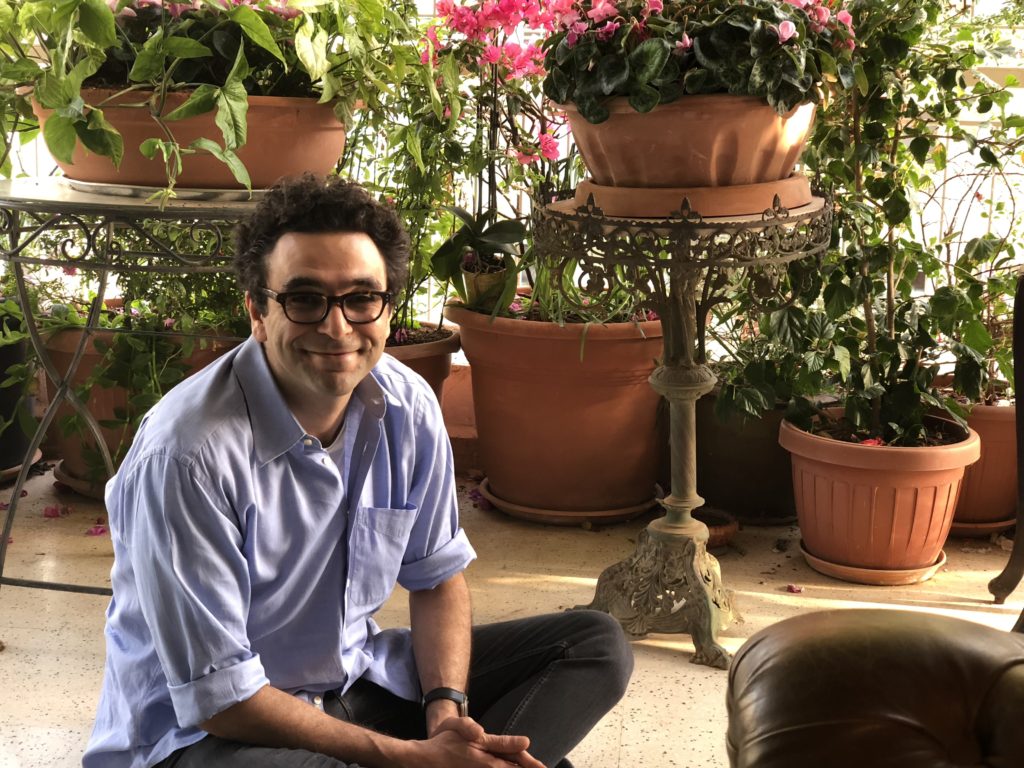Established English tutor, accomplished writer and passionate founder of Figtree’s first creative writing class, Khaled is helping children rediscover the joy of the written word. We talk to Khaled about his tutoring career and how creative writing can benefit students across the curriculum.

How long have you been tutoring for, and what brought you to Figtree?
Having spent over ten years teaching English as a second language in Paris, I was ready for a change. When I heard how much of a demand there was for creative writing lessons in London, it seemed like the perfect opportunity to switch subject and scenery.
I’ve been at Figtree for two years now and I think their personal approach to their students is just what many of them need. It boosts motivation, helps students connect with the material and understand why it’s important.
Do you specialise in any particular subjects – and if so, why?
I teach a range of subjects, including English and French, and help prepare students for school entrance exams, such as the 7-Plus, 11-Plus and 13-Plus. But as a writer myself, my specialism lies in creative writing.
It’s definitely a challenge trying to simplify the mechanics of writing for a young audience, but seeing my students get to grips with writing makes it a challenge I love. Teaching creative writing is very much an interactive process, and it’s my job to recognise my students’ strengths and improve their weaknesses – while ensuring they stay engaged and excited by their work.
What could we expect from one of your creative writing classes?
My creative writing classes are designed to improve students’ writing techniques, and their hold on the language, to support them in a whole range of academic pursuits. But it’s also very important to me that they learn to love and appreciate the reading and writing process – I want them to be as excited as I am by the possibilities of literary expression.
I use a lot of great literature to inspire my students in class, but I’ve also crafted specific exercises to improve their confidence with a range of writing techniques. I’m continuing to explore more interactive, engaging ways to conduct my creative writing workshops, taking into consideration the age and level of each student. This tailored approach allows me to incrementally prepare children to take on some of the more challenging texts they’ll be expected to read as they get older.
Why do you think creative writing is so important for children to learn?
I believe creative writing exposes children, often for the first time, to challenging philosophical and social ideas in a palatable form. That’s why it’s all the more important that they’re given the opportunity to read the right things, so that they’re introduced to the joys of reading from a young age.
But the benefits of creative writing go far beyond the confines of the page we’re working on. Learning how to structure a plot, convey character and express continuity equips children with tools that will help across the curriculum. It improves their problem-solving skills, vocabulary and grasp of abstract ideas, while the ability to interpret text, develop coherent thoughts and structure an argument is indispensible in any discipline.
Who is your all-time favourite author?
That’s tricky – I don’t think I can choose just one! I love Kazuo Ishiguro, Lydia Davis and Junot Diaz, but my list could go on.
